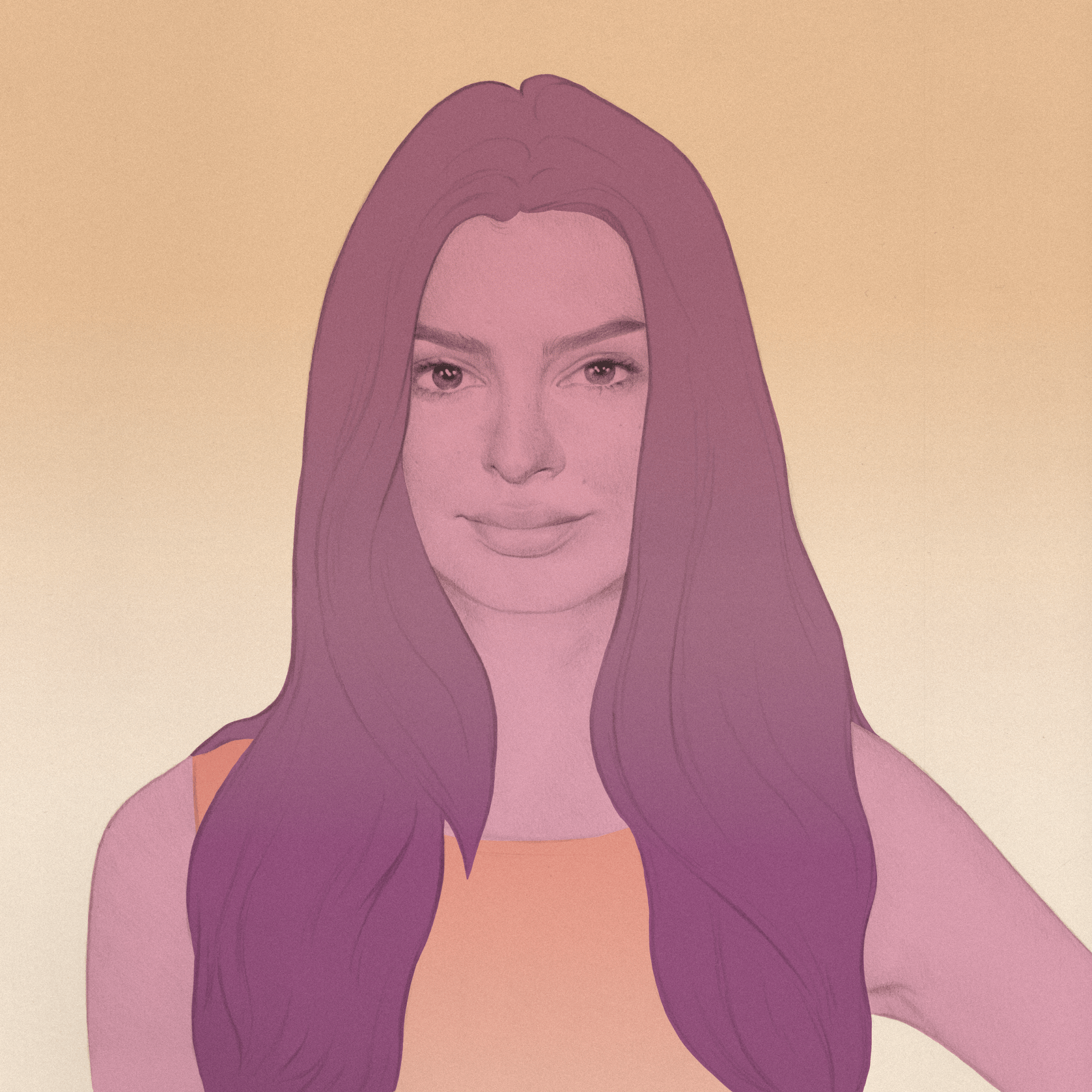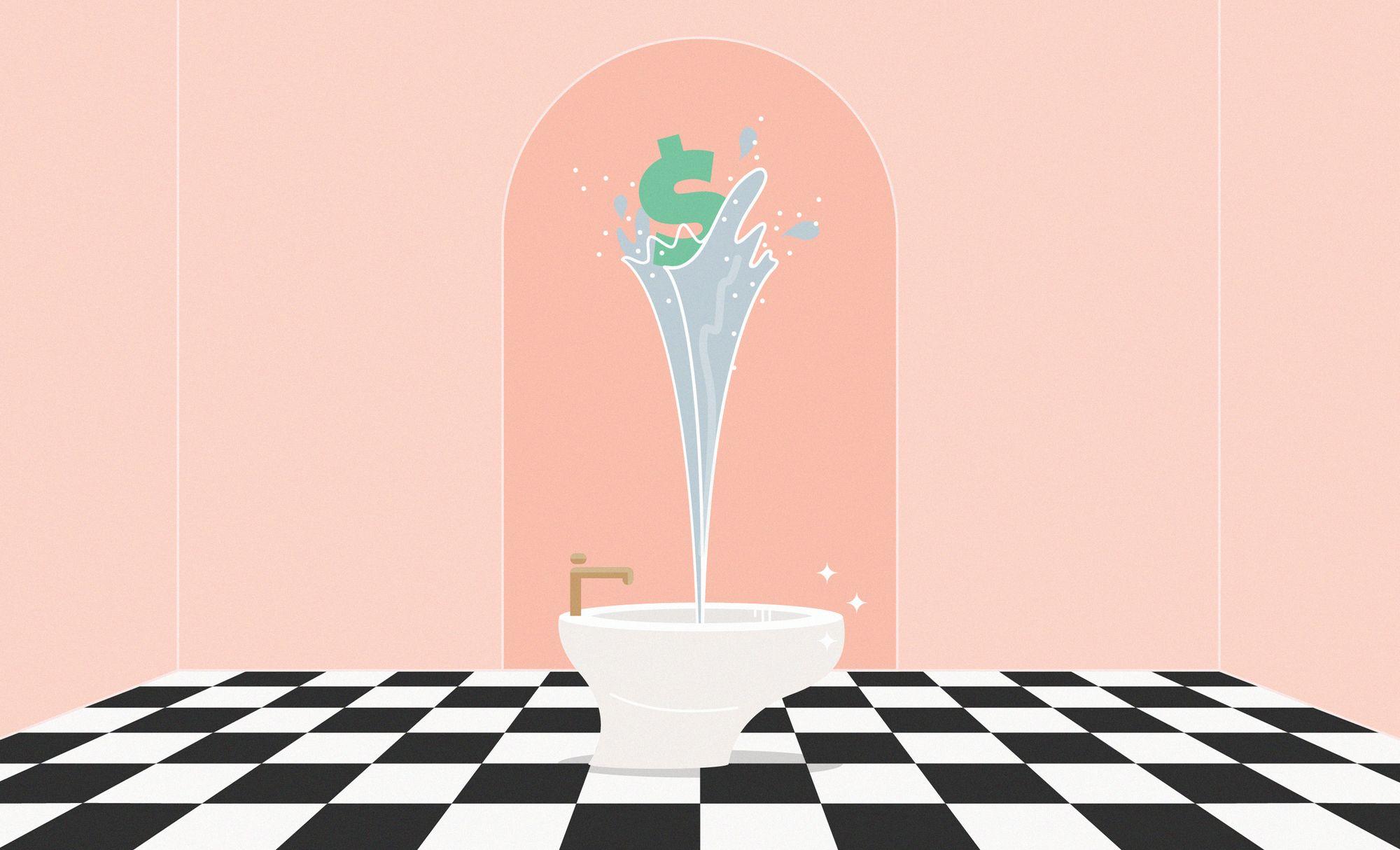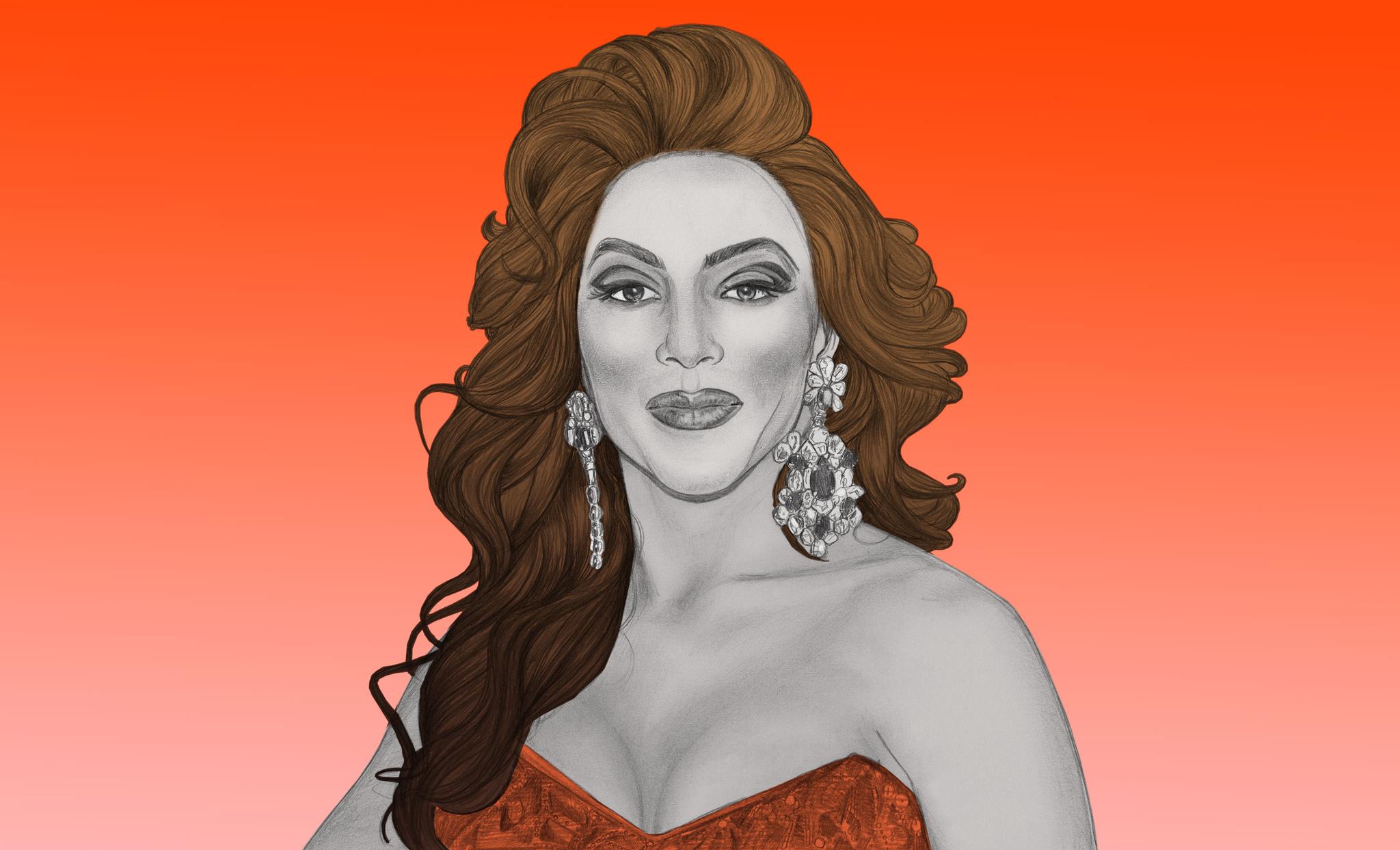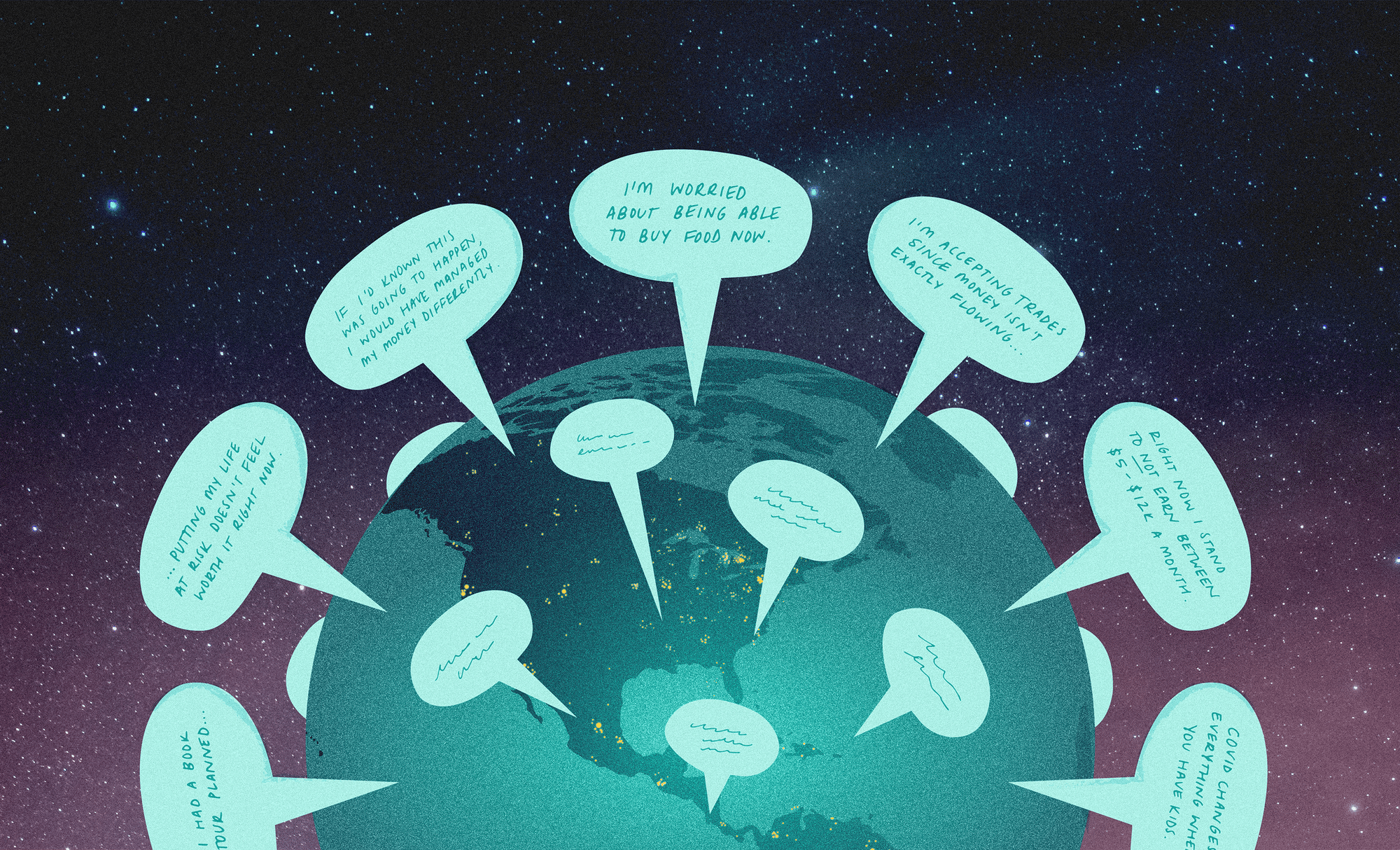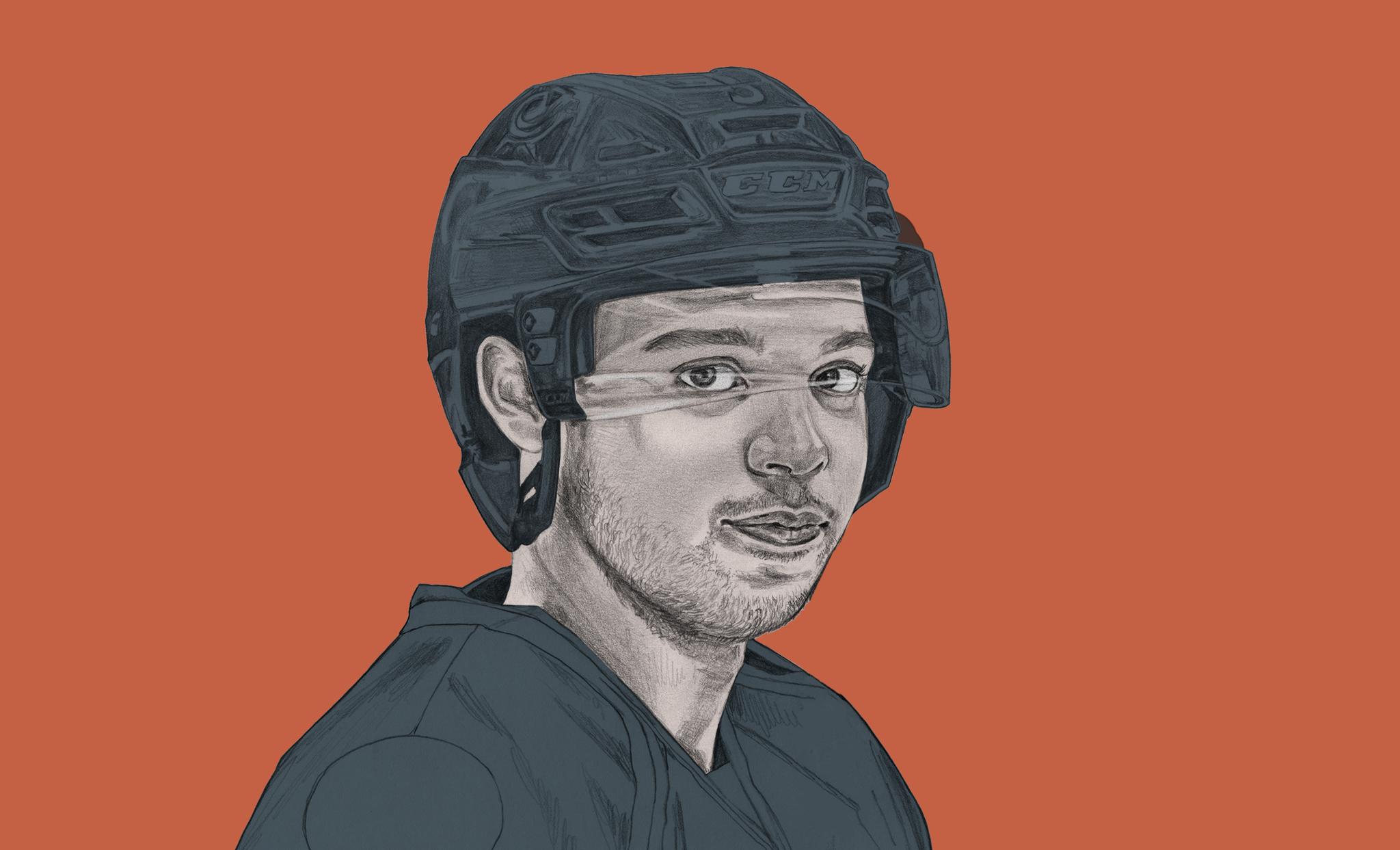
Money Diaries
The NHL's Seth Jones Makes His Money in Reverse
The Columbus Blue Jackets star talks about growing up the son of an NBA pro, being black in the NHL, and getting an agent at 14.
Wealthsimple makes powerful financial tools to help you grow and manage your money. Learn more
Wealthsimple is an investing service that uses technology to put your money to work like the world’s smartest investors. In “Money Diaries,” we feature interesting people telling their financial life stories in their own words.
Everyone tells me I make money in reverse. Meaning, normal people start making the most money when they're in their forties or fifties, but professional athletes, we make the most money when we're in our early twenties and early thirties. So it becomes even more important to have the right people around you when you're making that money. You have meetings with your financial advisors, your money managers. They sit down with you, they go over your budget, they go over your spending and they say: This is what you're gonna have to live on. Say I retire at 35, this is the X amount of dollars you will have to live on every year for the rest of your life.
My dad — Popeye Jones — played in the NBA, so I grew up blessed with a little bit of money in the family. My parents were definitely smart with it, too. So my mom and dad had always been all over me about if I ever got the opportunity to play a sport and make some money that I would be smart about it, too. My hopes and dreams were to play hockey, and that obviously comes with paycheques. My two other brothers played hockey as kids. My younger brother is in the minor leagues right now. We're all kind of doing the sports thing and so obviously the topic probably comes up more than in other households. So I obviously turned to him, and I really turned to my mom, about anything that has to do with investments and that sort of thing.
I was born in Dallas and then we picked up and moved to a few places because of my dad. So I lived in Toronto for a year. And then we went to Boston for a year, two years, maybe. And then we settled down in Denver when I was around four years old — he got traded to the Nuggets and he eventually retired there.

Sign up for our weekly non-boring newsletter about money, markets, and more.
By providing your email, you are consenting to receive communications from Wealthsimple Media Inc. Visit our Privacy Policy for more info, or contact us at privacy@wealthsimple.com or 80 Spadina Ave., Toronto, ON.
There was never any pressure to follow in my dad’s footsteps, which is kind of weird. Wherever we lived we always had the sport court with the basketball hoop and the hockey net next to each other. The basketball hoop didn't get used as much as the hockey net, did but it still got used. My dad wasn't trying to put us in leagues or anything like that. We decided to play what we wanted to play. We were watching the Avalanche a lot in Denver — they won the Stanley Cup in 2001 and we were able to be at that game — so it just kind of took off from there.
When you're in your earning years, like I am, you have to be extra smart, extra secure about what you're doing, and especially who you trust.
Back then I was just a kid playing hockey and travelling around all summer. You don't even think about money. But it's extremely expensive to play hockey. The gear, the skates — if you want the best skates now it's around $1,000. The best sticks are around $300 each. And then they break, so you gotta get more. Plus travel and everything like that, it's definitely not cheap. If you compare it to other sports, you don't need much for basketball — you need a pair of shoes and you need a basketball. Soccer, you don't even need great shoes really. Football, same thing. I mean you can literally play all these sports just based off your athleticism and going to the park. I think that makes it a lot easier for young kids to play those sports and obviously that’s been a factor in the growth of their popularity — the fact that they’re affordable to play. I actually sponsor a kid in Dallas right now in youth hockey. It's a program where I sponsor a kid that can't afford to play AAA hockey, because it's that expensive now. I go through a program that helps families in need— I help out with a kid every year.
I think when I first really thought about money is when I had the opportunity to get paid. Like, when I thought that I could get paid for what I love to do — I would say 10 or 12 years old. I always wanted to play in the NHL. I played two years up when I was 10 — (I was 10 years old playing with 12 year olds). I won a national championship with them. I think I got an agent a few years later, by 14, which is pretty young. At that age the agent is called a “family advisor” — if you go to college you’re not allowed to have an agent because you can't be paid. I didn't really need anything when I was 14, right? But you know how agents are — they want to get on you early. They’re hoping that you pan out. So he flew down to Dallas when I was 14 and we sat down and talked. I probably had meetings with five or six advisory groups and agent groups. It was me and my mom in there and we had to deal with all that. That is kinda when it started ramping up with articles and the hype.
My mom is white and my dad is black. I'm 50-50. I never really thought about anything that came with that, to be honest, but that's the angle the media took with me. I understood it, trust me. I'd dealt with a lot of media already in my young career and I knew that was something that was gonna happen. Even as a kid, around 10, 12 years old, a lot of articles were already coming out about how my dad played basketball, and I'm playing hockey now, and how nobody really had seen anything like that before. There are probably only around 10 to 12 African-Americans in the league now. That's a small number when you look at the totality of the league, which is around 600, 650, 700 players. It may be because it's just not a popular sport for African-Americans. I think you look at the more African-American dominant leagues as being the NFL or the NBA. I don't know why that's the way it is — it could be because it's cheaper to play other sports. But for me, I was always accepted wherever I played hockey — and by who I played with. I never thought about race. I’ve never dealt with any racist remarks my whole career. I understand guys have, especially in the NHL — there's been a little racism these past couple of years. But nothing came my way, for which I'm extremely blessed. Hopefully it never will.
I think whatever I can do to help grow the game is worth doing. I'm the team ambassador for the NHL's “Hockey is for Everyone,” so when inner city kids come in I talk to them once or twice a year. They’ll come for games and stuff like that and I'll see them after.
Our highest paid players? Their salary is probably like $12,500,000.
I left home at 15, turning 16. I went to the US program, the USA Hockey National Team Development Program. I played for the under 17 and under 18 teams for two years there in Ann Arbor, Michigan. You live with a host family, so that helps obviously – them cooking dinners and everything like that. You go to high school by yourself, you go to practice, and you come home, you do your homework, you go to bed. You’re always travelling; you travel overseas a lot to play other countries for instance. It was tough at first. The first time moving away from home at 16 years old you don't really know what to expect. But I mean at that point, your life is hockey. That hasn't changed from then until now. Even if I'm doing something else, hockey is in the back of my mind.
Our highest paid players? Their salary is probably like $12,500,000. Who's the highest paid player in the NBA now? Maybe Steph Curry at $40,000,000? And then what's baseball? 35 maybe? Those salaries are ridiculous. And that's kind of where the NBA is going right now as well. Their TV deal is shooting them through the roof. So we're a little bit behind. I went pro at 18 turning 19 and got drafted by Nashville — I was the fourth pick overall. The first overall pick gets a certain amount of dollars and a certain amount of bonus opportunity — so I think I got a few hundred thousand less bonus opportunity, which means you may make it, you may not. But what's interesting in hockey is my salary was the same as the number one pick after three years. It’s when you get to the second round, or third or fourth round, where you'll start seeing dips in bonuses and dips in salaries by hundreds of thousands.
I have my own house here in Columbus and when we go on the road, we charter a plane so we don't have to worry about travel costs. I think it's a $100 a day per diem on the road when we travel. Obviously they pay for our hotel rooms, travel to and from games, meals — everything like that. We get paid twice a month. You get paid the first and the fifteenth or whatever it is every month of the season. I think it equals out to 13 or 14 pay cheques for the season. Obviously when you get your cheques the taxes and everything are taken out of them and that's what you're left with. I don't think about it too much. Obviously if it's the first of the month you're like: It's paycheque day, that's nice.
When you're in your earning years, like I am, you have to be extra smart, extra secure about what you're doing, and especially who you trust. Everyone is going to have bad experiences, and while it's still early in my career, I think I’ve done a pretty good job of learning who to trust. I actually have two money managers now. So I give half and half and I tell them both, “Hey, I gave this other person half,” so they kind of compete with each other. I’m always checking — I try to be all over 'em.
Also the NHL has a pension program, which a lot of leagues do. I think when you’re 65 you can have up to $200,000 a year until you die. They can chart the entire thing out for you for the rest of your life — till you're 100, if you want — and tell you how much you're gonna have based on what you're making now and what you’re spending.
But I'm 24 years old. I don't know what I want to do after hockey. I'm just kinda going with the flow with this and we'll see what happens. But I know and I understand that maybe I will have to do something after — maybe I’ll coach or do something like that to just keep myself involved. Who knows? I'm just gonna leave the door open.
As told to Zach Baron exclusively for Wealthsimple; transcript edited and condensed for clarity. Illustration by Jenny Mörtsell.
Wealthsimple's education team is made up of writers and financial experts dedicated to making the world of finance easy to understand and not-at-all boring to read.
